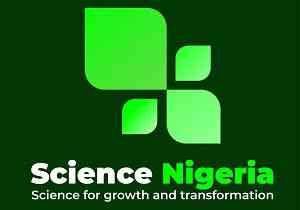
The Federal Government has said it intends to explore the benefits from the peaceful use of nuclear technology for national development.
The Minister of Science and Technology, Dr. Ogbonnaya Onu stated this at a one-day stakeholders’ engagement meeting on the Nigeria Energy Calculator 2050 (NECAL 2050) organised by the Energy Commission of Nigeria (ECN) and the department of climate change (DCC) of the Federal Ministry of Environment supported by the United Kingdom (UK) Department of Business, Energy and Industrial Strategy (BEIS) yesterday in Abuja.
He pointed out that nuclear energy presented a viable option to help Nigeria build a stable power supply base.
“In addition to its contribution to power supply, nuclear technology is very useful in so many areas including medicine, agriculture, education, manufacturing that can significantly help economic growth, job creation, poverty reduction and overall national development. Our dear nation cannot continue to stay away from the peaceful use of nuclear technology,” he said.
He added the concern for safety was one that could be adequately handled through the participation of the private sector in nuclear technology, pointing out the need for the country to encourage business people to start making money working on nuclear technology.
Onu further said Nigeria was ready to work with any country or countries willing to initially assist it in acquiring the necessary expertise needed in nuclear technology.
“We will vigorously pursue energy efficiency so that our enormous energy resources will be utilized efficiently for sustainable development. The future for energy supply in Nigeria is bright. We have all it takes to meet our energy demand,” he added.
Giving the history of the Energy Calculator 2050, the director-general of ECN, Prof. Eli Bala, explained it is a planning tool developed in 2010 by the then UK Department of Energy and Climate Change (UK-DECC) to help explore public opinion on energy pathways that would facilitate the reduction of UK’s GHG emissions by 80 per cent by 2050 relative to the 1990 baseline emissions in order to comply with its 2008 Climate Change Act.
He said the UK-DECC in 2013, in the spirit of promoting global warming mitigation, supported the commission through the British High Commission in Abuja to adapt and produce the Nigerian version of the Energy Calculator, NECAL 2050 which assisted Nigeria in establishing its Nationally Determined Contributions (NDCs) at the Paris Climate Agreements in the fourth quarter of 2015.
The ECN boss said the commission and the department of climate change signed a memorandum of understanding with UK in Abuja on June 23, 2020 to update and improve the 2015 version of NECAL 2050 as well as facilitate the review and deepening of Nigeria’s NDCs, adding work has commenced with the formation of National Steering Committee and Technical Working Group since then.
He said stakeholders were participating in the workshop, both physically and virtually, to look at how far and make inputs on the data so far collected for the one-pager needed to run the web driven energy planning model.



